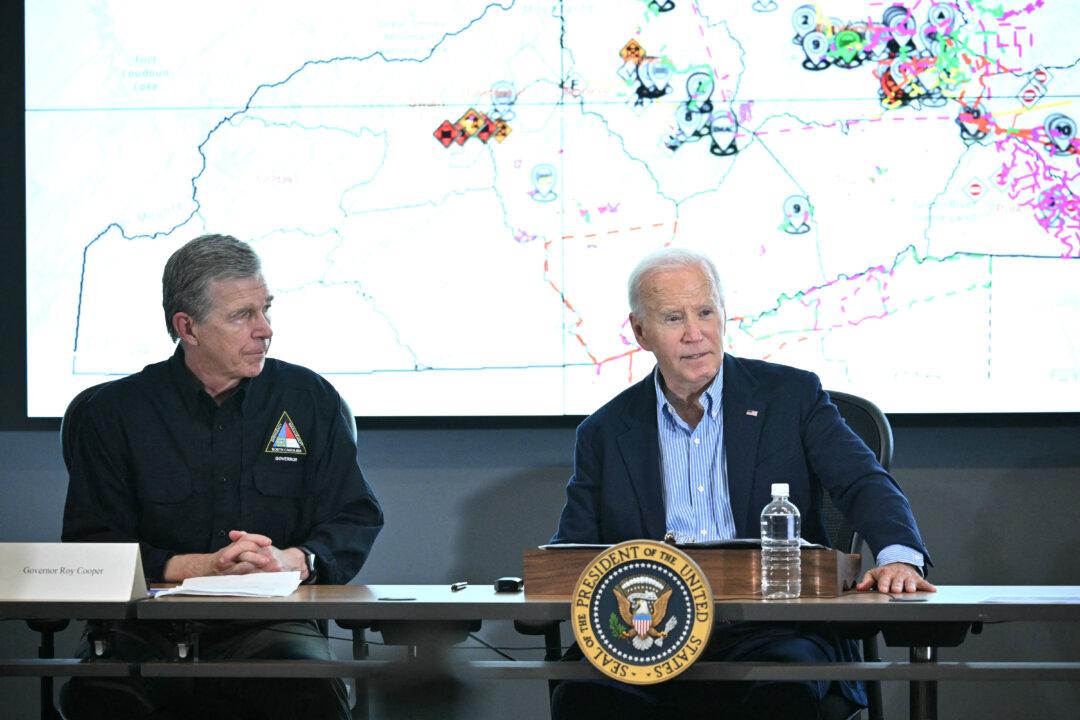President Joe Biden and Vice President Kamala Harris on Oct. 2 made their first visit to areas impacted by Hurricane Helene, after the devastating storm wreaked havoc on six states throughout the Southeast.
Biden visited North Carolina and South Carolina to tour the damaged areas. The president planned to continue his tour with stops in Georgia and Florida on Oct. 3, according to the White House.






